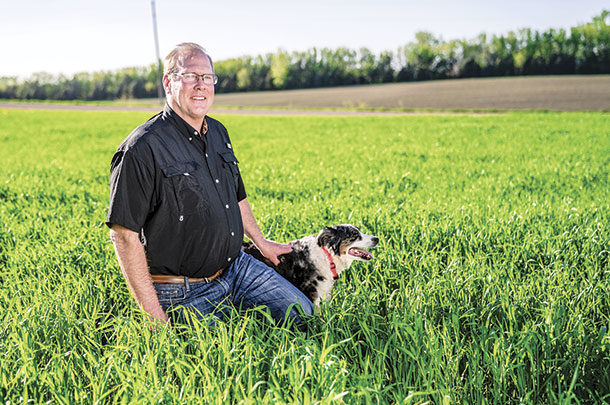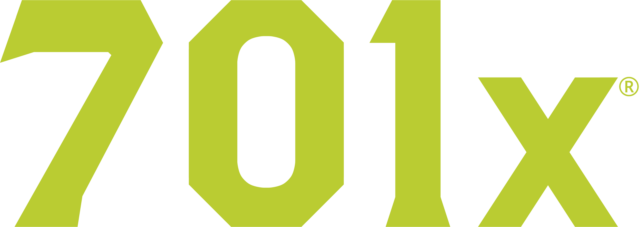Outstanding Supply Chain CollaborationBel Brands USA, Land O’Lakes Inc. and Boadwine Dairy
Increasing societal questions have more consumers, analysts and investors asking what their preferred brands are doing to mitigate changing climate concerns. With the realization that no single component of the dairy industry can create full sustainability on its own, there is growing awareness that collaboration within and throughout the dairy supply is necessary to address those concerns. A pilot project partnering two international companies and an Upper Midwest dairy farm is designed to do that.
Prior to 2021, Bel Brands USA Inc. and Land O’Lakes, Inc. were on separate paths toward achieving sustainability goals.
Bel Brands USA, a subsidiary of Bel Group, based in France, has its U.S. headquarters in Chicago, Illinois, and has three U.S. production facilities: Little Chute, Wisconsin; Brookings, South Dakota; and Leitchfield, Kentucky. Bel produces more than 30 local and international brands that are sold in more than 130 countries and reach 400 million consumers globally.
In 2017, Bel Brands announced science-based targets to make their operations carbon neutral by 2025, and to reduce their entire carbon footprint to meet 2015 Paris Climate Conference (COP21) targets. Reaching those targets meant measuring emissions from its milk suppliers to establish a baseline. In 2021, parent company Global Groupe Bel took a bolder strategy to bring its carbon footprint in line with 2021 Glasgow Climate Conference (COP26) targets and to cut on-farm emissions from milk supplies in half by 2035.
Land O’Lakes, Inc. is one of America’s largest agribusiness and food companies. Headquartered in Arden Hills, Minnesota, it is a farmer- and retailer-owned cooperative with operations that span the spectrum from agricultural production to consumer foods. Through its businesses – Land O’Lakes Dairy Foods, Purina Animal Nutrition, WinField United and Truterra LLC – the company does business in all 50 states and more than 60 countries.
In 2021, Land O’Lakes announced that within the next four years, all dairy farmer-owners would complete an intensive, on-farm sustainability assessment. To support the effort, Land O’Lakes created a new Dairy 2025 Commitment team dedicated solely to the collection of on-farm data and to help to develop measurable ways for its farmer-members to improve on-farm efficiency and further reduce their environmental footprint.
In addition, Land O’Lakes’ Truterra business unit developed sustainability technology that gathers data to inform management decisions across an entire farm, acre by acre, tracking changes and improvements in key sustainability factors such as greenhouse gas emissions (GHG) and soil erosion. To date, Truterra has delivered more than $4 million in cash payments to farmers for sequestering carbon.
Boadwine Dairy selected for pilot
With a shared mission and goals, Bel Brands USA and Land O’Lakes, Inc. began exploring ways to partner with dairy farmers to make the industry more sustainable. The two companies selected Boadwine Dairy, located near Baltic, South Dakota, for a multiyear pilot project.
The farm, homesteaded in 1874 by current owner Lynn Boadwine’s great-grandparents, is a Land O’Lakes member-owner and Bel milk supplier. The farm’s passion for dairy, openness to new technologies and techniques, and willingness to share information made it an ideal choice.
From an environmental standpoint, the goal of the project was to implement and measure sustainable agriculture practices that promote soil health and reduce GHG emissions, evaluating results from the entire operation. To support the project, Bel Brands provided funding and Land O’Lakes, Inc. provided project management and implementation resources, data collection and analysis through its subsidiaries. The pilot effort was one of the first to use Land O’Lakes’ Truterra sustainability tool.
“The more I learn about soil health, the more I see that I need to learn. But not every farmer is in a position to invest in testing and learning, so support from partners like Land O’Lakes and Bel Brands further up the supply chain is critical,” says Lynn Boadwine.
“Our partnership with Land O’Lakes and dairy farmers exemplifies Bel’s unwavering commitment to sustainability. We want to be the best possible partners to dairy farmers in their efforts to make the dairy industry more sustainable and conserve the planet’s resources,” says Brian Zook, director of Milk Sourcing and Sustainability at Bel Brands U.S.A.
“Land O’Lakes is committed to developing the programs, tools and support that contribute to the health of the planet and also position farmers and the agriculture sector for success,” says Corey Scott, Truterra Livestock Services Lead. “We’re grateful to partners like Bel Brands that are showing a willingness to invest in on-farm sustainability projects.”
Focus on cover crops
An initial component of the pilot project focused on the use of cover crops, which are increasingly being recognized for their role in helping sequester carbon while reducing other emissions via efficiencies in how fertilizer is used. Importantly for farmers, cover cropping leads to long-term gains in soil health and function.
The Truterra data platform was used to benchmark, track and evaluate changes in nutrient utilization efficiency (NUE), soil erosion, soil quality and greenhouse gas emissions. Monitoring will continue over the course of three years.
Benchmarking and tracking changes in these key performance indicators provides critical information on environmental impact of a new practice (in this instance, planting cover crops). More importantly, the data delivers insights to participating farmers so they can identify additional ways to continuously improve profitability and productivity.
“The overall goal is pretty simple: more cover crops, less tillage, more soil armor. But we have a whole new strategy for next year based on what I’m learning,” says Boadwine.
Scoring progress
The Truterra tool uses a simple sustainability score (1-100) to help farmers quickly and easily see their progress. The score is based on an algorithm evaluating the field-level data, factoring in unique properties including soil types, topography and weather. The score provides an overall assessment of current stewardship practices and allows tracking over time. A score of 75+ is considered an “advanced” practitioner of environmental stewardship and conservation practices.
Boadwine Dairy’s initial score was a 59, 10 points higher than the national average across the 1.8 million acres currently enrolled in the Truterra program. With that serving as the benchmark, the Boadwine Dairy’s agronomic and environmental improvements will be tracked over a three-year period, and project organizers believe advances have already been made with the implementation of additional cover crop acres and other climate-smart agronomic practices.
The estimated net GHG emissions on Boadwine Dairy shows a carbon sink of 784 pounds of carbon dioxide equivalent per acre per year. That indicates significant sequestration of carbon in the operation.
Boadwine Dairy’s NUE benchmarked well above other producers in the nearby geography. When NUE is paired with cover cropping, reduced runoff and improved water quality are evident. Increased use of cover cropping is also expected to significantly reduce sheet and rill erosion.
An important component of sustainability is economics. This is especially true of practices such as cover crops that may require multiple crop years to demonstrate a return. The project accounted for this fact by taking more than 100 data points related to farm management practices and analyzing them through the lens of a variety of factors, including improved yield, tonnage of silage, water uptake, fertilizer expense and more.
While Bel Brands and Land O’Lakes don’t release specific financials of fields in the project, collecting this information allows the producer to easily transfer information to their balance sheets to shed light on the overall return on investment. Going forward, the information can also be leveraged for other financial incentives associated to GHG reduction and carbon credit programs.
Scaling and sharing key learnings
The project is being replicated and expanded in 2022, with the objective to prove it can be successfully applied on dairies of all sizes and locations. In addition to tripling the size and scope among South Dakota farms, with five dairies ranging from 450 to 2,000 cows, the project will involve an Indiana dairy farm that supplies milk to the Bel plant in Leitchfield, Kentucky.
As farmers look for ways to make their operations better for the next generation, they increasingly value projects and partners that provide them with new tools and resources to do just that. In addition, the program is bringing new jobs and skill sets to the dairy community, while also meeting consumer preferences for dairy products with an improved environmental footprint.
“By combining the full footprint of Land O’Lakes, Inc. with the established leadership of our farmer and retail owners, we are working to help customers meet their sustainability commitments while providing new market opportunities for our cooperative system,” says Truterra’s Scott.
Outstanding Dairy Farm Sustainability
Grayhouse Farms,
Stony Point, North Carolina
Schlangen Dairy,
Albany, Minnesota
Deer Run Dairy LLC,
Kewaunee County, Wisconsin
Bar 20 Dairy,
Kerman, California
Outstanding Supply Chain Collaboration
Bel Brands USA, Land O’Lakes, Inc. and Boadwine Dairy
Outstanding Dairy Processing and Manufacturing Sustainability
Milk Specialties Global,
Monroe, Wisconsin
Outstanding Community Impact






